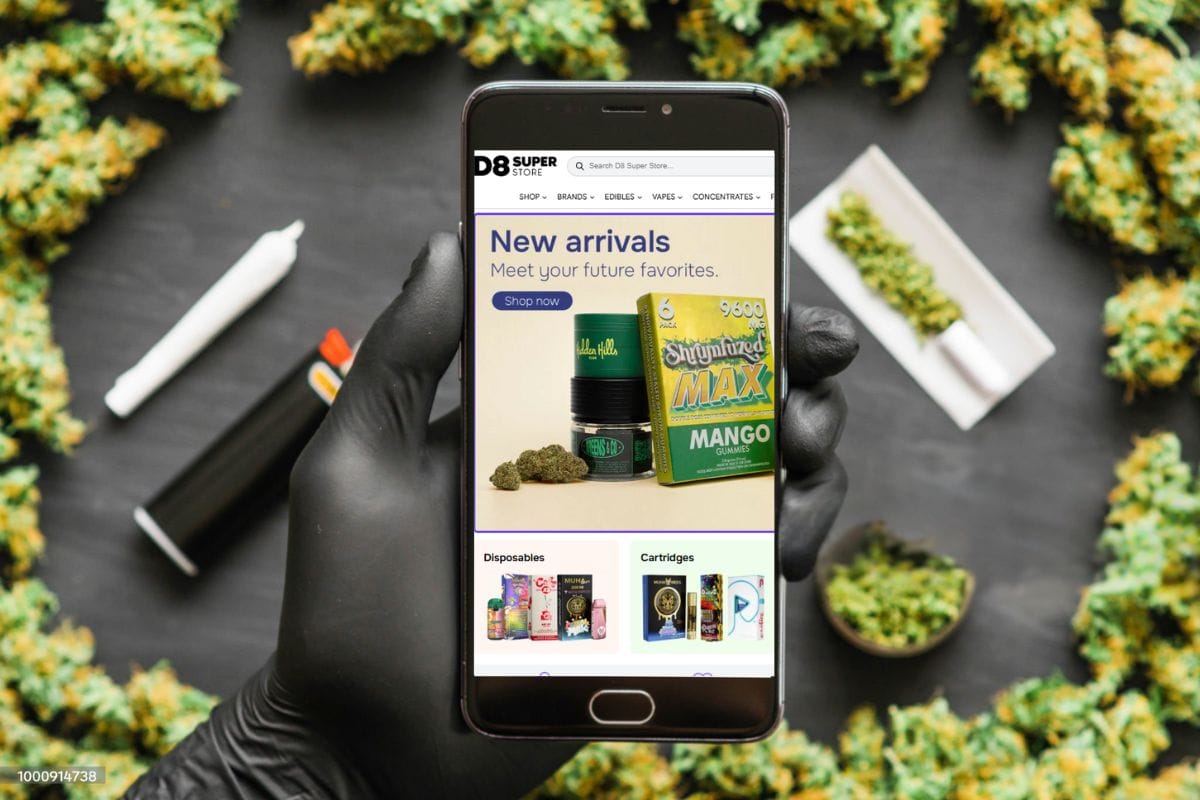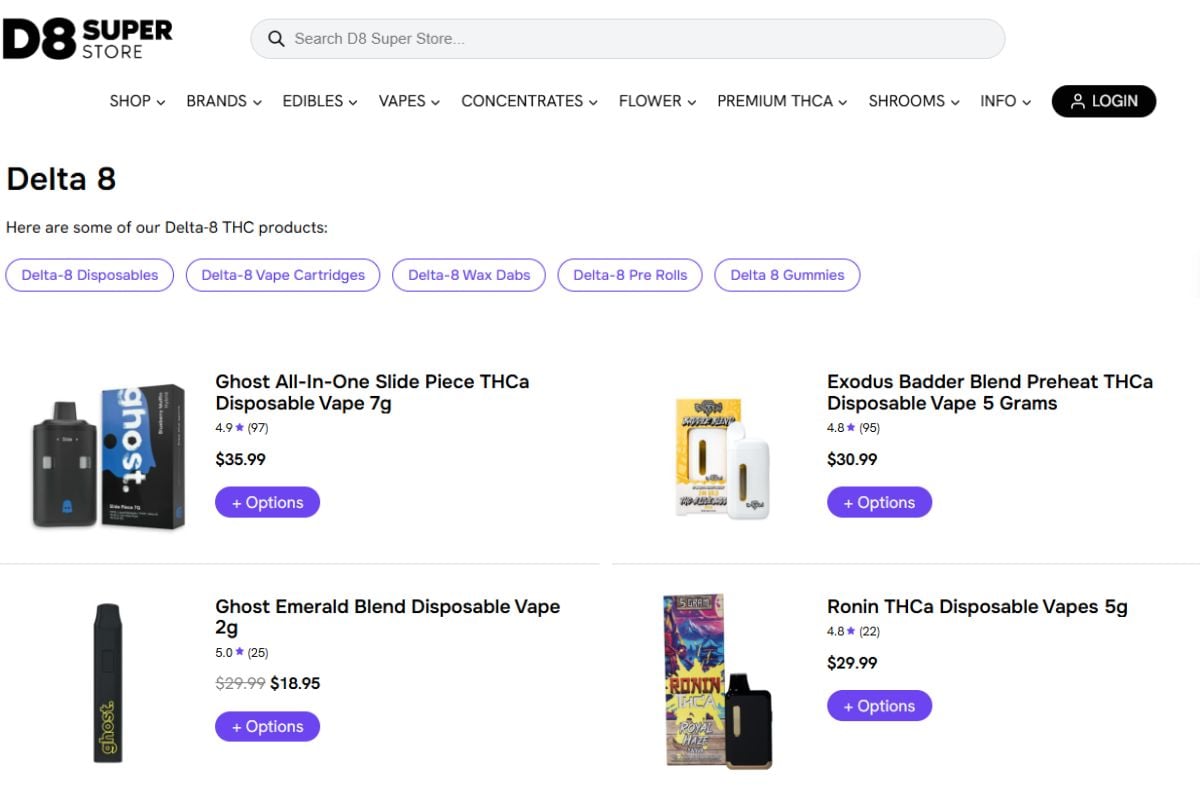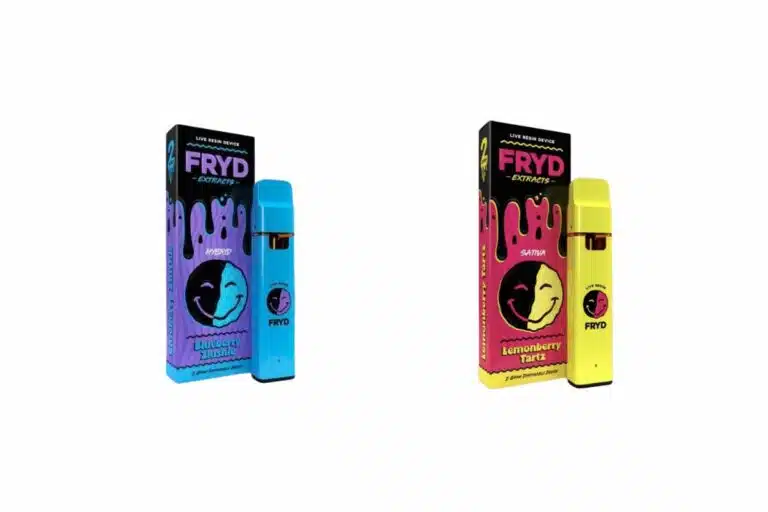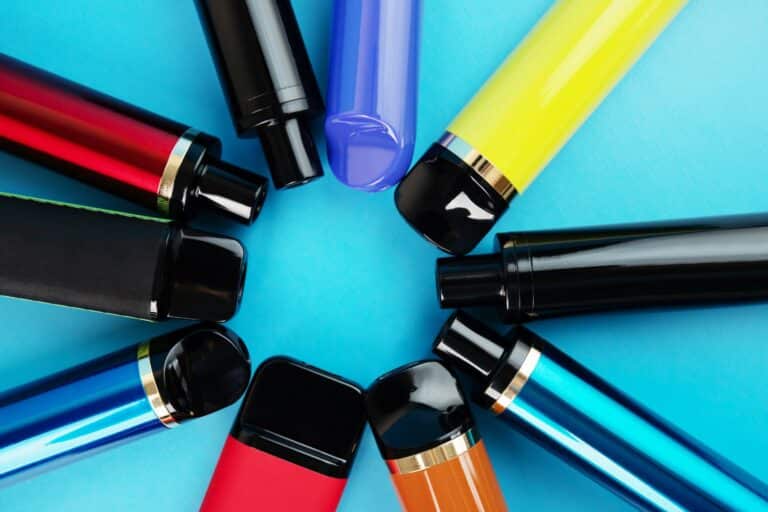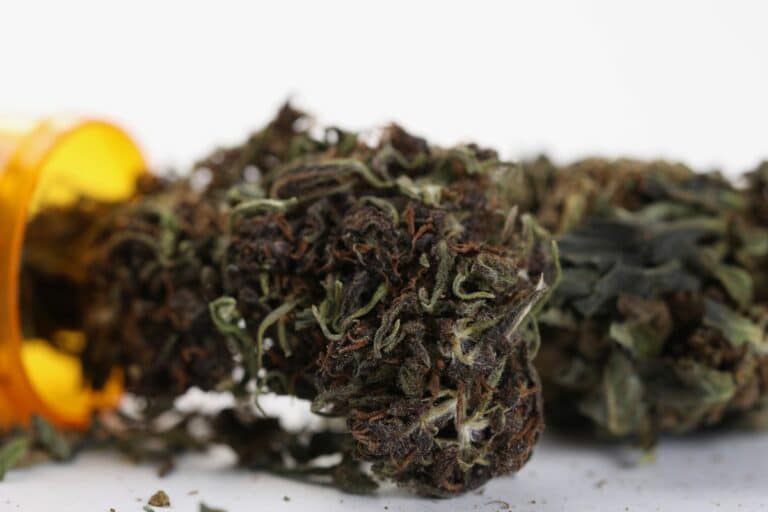Can I Order Delta 8 Online Legally? A Complete Guide to Safe Purchases
Since it’s typically extracted from hemp, Delta 8 is considered federally legal under the 2018 Farm Bill, as long as the final product contains less than 0.3% Delta 9 THC by dry weight.
This legal status has fueled the rapid rise of Delta 8 THC products, including edibles, vapes, and tinctures, across many states. On top of that, many users turn to Delta 8 for its milder effects, potential to ease anxiety, and its ability to support focus and relaxation without the stronger high associated with Delta 9 THC.
- Introduction to Delta 8
- Understanding Delta 8 THC Products
- Key Differences between Delta 8 and Delta 9 thc
- Legal Status and Purchasing
- The Role of Trace Amounts: Why THC Compliance Matters for Delta 8
- Potential Risks and Considerations
- Drug Testing and Delta 8
- Other Cannabinoids
- Delta 8 and Edibles: Are They Safer Than Smoking or Vaping?
- The Rise of "Diet Weed": Why Some Consumers Prefer Delta 8 Over Delta 9
- Delta 8 for Adult Use Only: Why Age Restrictions Matter
- From the Cannabis Sativa Plant to Your Doorstep: The Journey of Hemp-Derived Delta 8
- Delta 8 and the Endocannabinoid System: How It Interacts With Your Body
- Quality Control and Safety
- Benefits of Buying Delta 8 Online
- Customer Support and Resources
- Conclusion
As a result, buying Delta 8 online has become increasingly common among cannabis users. But what may not be common is the patchwork of laws, quality concerns, and potential drug test risks that they have to navigate while buying Delta 8.
This article explores the legality of buying Delta 8 THC online, with a focus on federal vs. state laws, safety considerations, and how to buy compliant products.
Introduction to Delta 8
Delta 8 THC is a naturally occurring cannabinoid found in the cannabis sativa plant, closely related to Delta 9 THC, the primary psychoactive compound in marijuana. However, Delta 8 offers milder psychoactive effects, often described as more clear-headed, relaxing, and functional, making it appealing to those seeking benefits without overwhelming intoxication.
However, it’s important to be aware of the legal variations across states, potential age restrictions, and the risk of failing drug tests, as some tests may not distinguish between different forms of THC. Always purchase from reputable sources, check for Certificates of Analysis (COAs), and stay informed about local and federal laws.
Understanding Delta 8 THC Products
Delta 8 THC is a cannabinoid with a slightly different molecular structure than Delta 9 THC, resulting in milder psychoactive effects. This makes it a popular option for those seeking a more clear-headed, focused experience without the intensity typically associated with traditional THC products.
Delta 8 is available in many forms, including edibles, vapes, smokable hemp products, and infused tinctures. As with all hemp-derived cannabinoids, the potency and effects of Delta 8 THC can vary widely depending on the product type, dosage, and individual body chemistry.
Consumers are encouraged to start with low doses, monitor their response, and choose products from trusted brands that provide detailed lab results to ensure purity, accurate potency, and federal compliance.
Key Differences between Delta 8 and Delta 9 thc
| Aspect | Delta 8 THC | Delta 9 THC |
|---|---|---|
| Psychoactive Strength | Milder, less intense high | Stronger, more potent high |
| Legality | Federally legal (via hemp) but restricted in some states | Federally illegal, legal only in select states |
| Source | Derived from hemp | Derived from marijuana (mostly) |
| Availability | Sold in gas stations, online shops, and wellness stores | Sold in licensed dispensaries where legal |
| Anxiety Risk | Lower chance of anxiety or paranoia | Higher potential for anxiety in some users |
| Medical Use | May help with mild pain, sleep, and relaxation | Commonly used for pain, appetite, sleep, and anxiety relief |
| Onset Time | Slightly delayed onset (especially edibles) | Faster onset, especially when smoked or vaped |
| Duration of Effects | Generally shorter duration | Longer-lasting effects |
| Potency | About 50–70% as potent as Delta 9 | More potent |
| Side Effects | Milder — dry mouth, light-headedness | Stronger — anxiety, dry mouth, coordination issues |
Legal Status and Purchasing
The legal status of Delta 8 THC is complex, shaped by a mix of federal regulations and state-specific laws. Most states allow the sale of hemp-derived Delta 8 products, but regulations vary. Under the 2018 Farm Bill, hemp-derived Delta 8 THC is federally legal as long as it contains less than 0.3% Delta 9 THC by dry weight.
However, several states have moved to restrict or ban Delta 8, citing concerns over its psychoactive effects and lack of regulatory oversight.
Because of this patchwork of laws, it’s essential for consumers to be aware of the rules in their specific state before attempting to buy Delta 8 online. Purchasing from a reputable seller who provides lab-tested products, adheres to federal guidelines, and follows local laws is crucial for staying safe and compliant. weed cbd delta 8 report report compounds non existent
The Role of Trace Amounts: Why THC Compliance Matters for Delta 8

By federal law, hemp products must contain less than 0.3% Delta 9 THC by dry weight. However, trace amounts of other cannabinoids like Delta 8 THC or THC-P also matter. If total THC levels exceed legal limits, the product may be considered a controlled substance, even if it’s hemp-derived.
To ensure compliance, producers rely on lab testing to measure cannabinoid percentages accurately. A Certificate of Analysis (COA) helps confirm that products meet federal level legal thresholds, are safe, and contain no harmful contaminants.
Potential Risks and Considerations
When purchasing Delta 8 THC products online, there is a real risk of encountering counterfeit or adulterated products especially from unverified sellers. Some of these products may contain undisclosed trace amounts of Delta 9 THC, which can potentially lead to a positive drug test.
In addition, age restrictions typically require buyers to be 21 or older, and compliance with this rule varies by state and seller. It’s crucial to understand the local laws and regulations surrounding Delta 8 THC in your area to avoid legal complications and health risks.
To stay safe, always buy from reputable sources, check for third-party lab results, and be fully informed of the potential legal and personal implications of using Delta 8 products.
Drug Testing and Delta 8
| Aspect | Details |
|---|
| Does Delta 8 Show on Drug Tests? | Yes — most drug tests detect THC metabolites, not the specific type (Delta 8 or 9). |
| Type of Drug Test Affected | Urine, saliva, and blood tests can all detect THC metabolites. |
| THC Metabolite Tested (THC-COOH) | Standard tests look for THC-COOH, which Delta 8 also produces. |
| Detection Window | 1–30 days depending on usage frequency and test type. |
| Frequent Users | Metabolites may stay in the system longer, increasing test failure risk. |
| Occasional Users | May clear system in a few days, but still a risk. |
| False Sense of Security | Since Delta 8 is legal in some states, users may wrongly assume it’s test-safe. |
| Employer Policies | Most workplaces do not distinguish between Delta 8 and Delta 9 THC. |
| Detox or Avoidance | Avoid use weeks in advance of a test to reduce risk. |
| Confirmatory Testing | Some employers may follow up with more specific testing, but not always. |
Most drug tests are designed to detect THC, and they may not differentiate between Delta 8 and Delta 9. While most standard drug tests are designed to detect Delta 9 THC, some Delta 8 THC products may contain trace amounts of Delta 9 or trigger a positive result due to similarities in their chemical structure. As a result, Delta 8 can sometimes be detected in drug screenings, especially if the product is not well-refined or tested.
It’s crucial for users to understand the legal and occupational risks associated with Delta 8 THC use, particularly if they are subject to routine drug testing. Always review the laws and workplace policies in your area, and consider speaking with a medical professional or employer before using hemp-derived cannabinoids.
Being informed helps avoid unintended consequences while still benefiting from milder and non psychoactive hemp-based THC products.
Other Cannabinoids
The hemp and cannabis plant both produce cannabinoids like CBD, Delta 8, and Delta 9, but in different concentrations. Delta 8 THC is just one of many naturally occurring cannabinoids found in the cannabis plant, alongside others like THC-P, HHC, and CBD. Many cannabinoids, even in small amounts, can contribute to the overall effects experienced from hemp and cannabis products.
These hemp-derived cannabinoids are increasingly available in a range of products from edibles to vapes each offering different effects and levels of potency.
Because these compounds interact differently with the endocannabinoid system, it’s important for users to understand both the potential benefits and risks before use. Some cannabinoids offer milder high effects, while others may be significantly more psychoactive.
Doing proper research on cannabinoid types, their chemical structure, and intended effects helps consumers make safe and informed purchasing decisions, especially when shopping online.
Delta 8 and Edibles: Are They Safer Than Smoking or Vaping?
As interest in Delta 8 THC products continues to grow, many users are exploring edibles like gummies, softgels, and baked goods as a safer alternative to smoking or vaping Delta 8. This delivery method appeals to individuals looking to avoid inhaling any form of cannabis or hemp-derived product, whether due to lung health concerns or personal preference.
Vaping and smoking Delta 8 THC products is one of the fastest ways to feel its effects.. While vaping or smoking Delta 8 thc provides faster effects, edibles offer a longer-lasting experience though they may take up to two hours to fully kick in, potentially leading to overconsumption if users aren’t cautious.
We also highlight the importance of accurate labeling, clear dosing, and third-party testing in edible products to avoid unintentional stronger effects or misleading potency claims. For those new to Delta 8, starting with a low dose and waiting patiently is the safest way to explore the benefits without unexpected intensity.
The Rise of “Diet Weed”: Why Some Consumers Prefer Delta 8 Over Delta 9
Delta 8 THC often nicknamed “diet weed” has surged in popularity among cannabis consumers looking for a smoother, less intense alternative to Delta 9 THC. Derived from the hemp plant, Delta 8 THC products provide psychoactive effects that are milder and more manageable, reducing the likelihood of anxiety or paranoia that some users experience with traditional THC products.
These hemp-derived cannabinoids are particularly attractive in most states where Delta 9 THC is severely restricted or banned, but Delta 8 remains legal due to its classification on the federal level. Many users appreciate the clear-headed high and functional euphoria that Delta 8 delivers, making it an appealing choice for daytime use, work productivity, or social settings.
Delta 8 for Adult Use Only: Why Age Restrictions Matter

Despite being federally legal, Delta 8 THC is not intended for minors. Age restrictions, commonly set at 21 and older, are in place to prevent access to psychoactive cannabinoids by underage individuals. Since Delta 8 THC products—like vapes, edibles, and hemp-derived tinctures—can alter mood and cognition, enforcement of age limits is essential.
Online retailers are required to implement age verification tools, and reputable sellers will refuse to ship to locations that prohibit sales to minors. These regulations mirror those applied to alcohol and tobacco, helping protect vulnerable groups from potential misuse and ensuring compliance with state laws.
From the Cannabis Sativa Plant to Your Doorstep: The Journey of Hemp-Derived Delta 8
Delta 8 THC begins its journey in the cannabis sativa plant, specifically from industrial hemp, a legal variant that contains less than 0.3% Delta 9 THC by dry weight.Since Delta 8 is found in only trace amounts naturally, it’s typically produced through chemical conversion from CBD, which is extracted from hemp flowers.
This process results in hemp-derived Delta 8 THC that meets the criteria set by the 2018 Farm Bill, making it federally legal—at least for now. After conversion, the compound is infused into a variety of cannabis products, such as edibles, vape oils, and sublingual tinctures, and shipped directly to consumers where permitted. Understanding this production chain helps consumers make informed decisions and verify product legality and safety.
Delta 8 and the Endocannabinoid System: How It Interacts With Your Body
| Component | How Delta 8 Interacts |
|---|---|
| Endocannabinoid System (ECS) | A complex system of receptors and neurotransmitters that helps regulate mood, pain, sleep, and more. |
| CB1 Receptors | Delta 8 binds mildly to CB1 receptors (mainly in the brain), causing mild psychoactive effects. |
| CB2 Receptors | Interacts slightly with CB2 receptors (found in the immune system), aiding inflammation control. |
| THC vs ECS Binding Strength | Delta 8 binds less strongly than Delta 9, resulting in a more controlled high. |
| Psychoactive Response | Produces a smoother, clearer high with less anxiety compared to Delta 9 THC. |
| Neuroprotective Effects | May support brain health by modulating calcium and potassium channels in neurons. |
| Appetite Regulation | Stimulates appetite via ECS pathways, similar to Delta 9 but milder. |
| Pain & Inflammation | Can help manage mild pain and inflammation by indirectly modulating ECS responses. |
| Homeostasis Support | Helps the body maintain internal balance by supporting ECS function. |
| Duration of Effect | Effects last a few hours depending on method of consumption and dosage. |
Although Delta 8 THC is considered a milder cannabinoid, it still interacts with the endocannabinoid system, especially the CB1 receptors in the brain and nervous system.
These receptors help regulate functions such as mood, appetite, pain perception, and sleep cycles. Compared to Delta 9, Delta 8’s chemical structure allows it to bind more weakly to CB1, which is why many users report a clearer, more functional high.
For individuals seeking balanced effects or those who are sensitive to stronger cannabinoids, Delta 8 THC may offer therapeutic potential with fewer disruptive side effects. As a hemp-derived cannabinoid, it also introduces a way to benefit from cannabis use without the overwhelming intoxication often associated with marijuana.
Quality Control and Safety
Ensuring the quality and safety of Delta 8 THC products is vital when shopping online, especially given the inconsistent regulations across different states. Reputable sellers should implement rigorous quality control practices, including third-party lab testing for purity, potency, and compliance with federal standards.
These results should be made available through a Certificate of Analysis (COA) to verify that the product contains less than 0.3% Delta 9 THC and is free from contaminants like pesticides, heavy metals, or residual solvents. This is because products with small amounts of Delta 9 THC must remain under the legal limit of 0.3% by dry weight.
Consumers should thoroughly research the brand, read customer reviews, and evaluate product transparency before making a purchase. Choosing products that are clearly hemp-derived and compliant with both federal and local laws ensures not only legality but also safety.
Ultimately, prioritizing verified sourcing, clear labeling, and reputable manufacturing practices protects users from low-quality or potentially unsafe Delta 8 products and enhances the overall experience.
Benefits of Buying Delta 8 Online
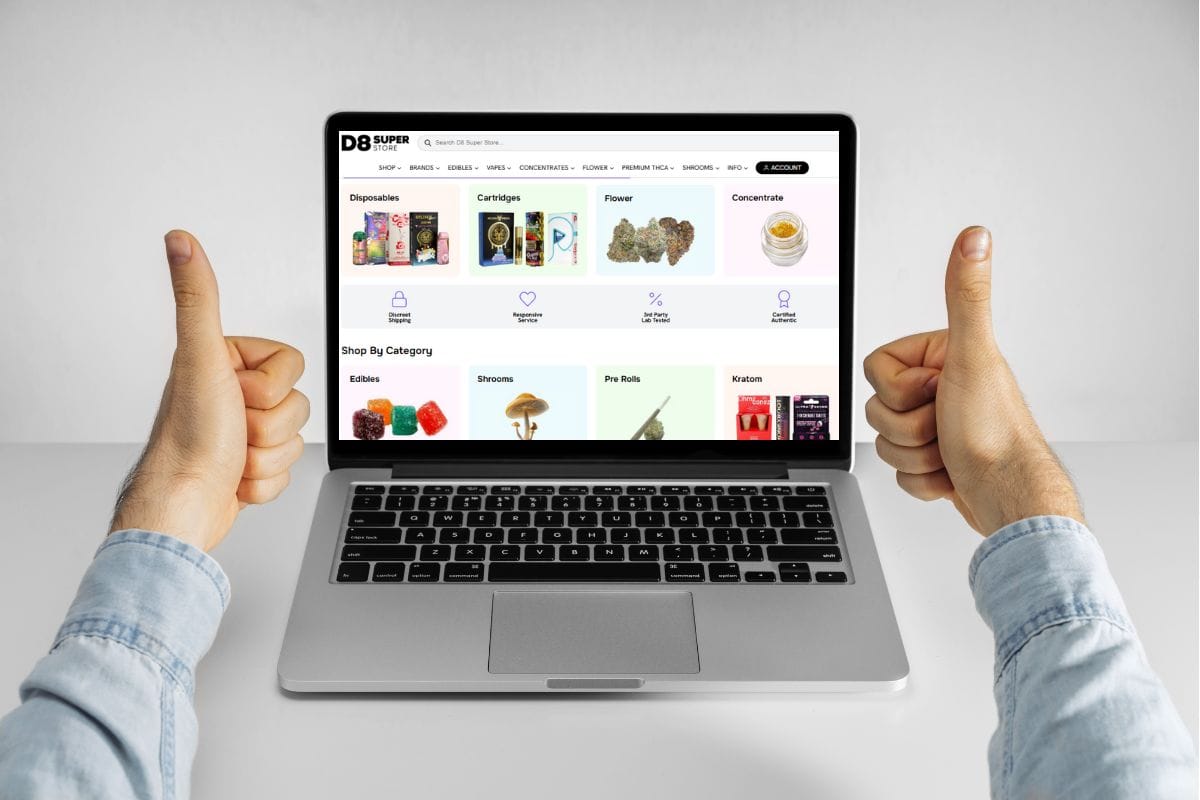
Buying Delta 8 THC products online is a convenient and often cost-effective option for many consumers. Online retailers typically offer a wider selection of hemp-derived products, including edibles, vapes, and smokable Delta 8, often at competitive prices.
Most reputable sellers provide discreet shipping, allowing users to receive their products privately and securely. Additionally, many online retailers implement strict quality control measures, including third-party lab testing and Certificates of Analysis (COAs), to ensure safety, potency, and legal compliance with federal and state laws.
Shopping online also allows consumers to easily compare brands, ingredients, and user reviews, making it easier to choose high-quality Delta 8 THC products that meet their needs.
Customer Support and Resources
Reputable Delta 8 THC sellers should provide strong customer support and accessible educational resources to help users make informed choices. This includes offering detailed product information, dosage guidelines, and authentic customer reviews.
Buyers should be able to easily contact the seller with questions or concerns through responsive customer service channels. A well-organized FAQ section, along with helpful guides or blog posts, can greatly improve the shopping experience especially for new users navigating hemp-derived cannabinoids for the first time.
Conclusion
Purchasing Delta 8 THC products online can be both safe and legal, but it’s critical to understand the complex legal landscape and the potential risks involved. While Delta 8 is federally legal when derived from hemp and containing less than 0.3% Delta 9 THC, state laws vary, and some states have imposed bans or restrictions.
To ensure a safe purchase, consumers should thoroughly research the seller, verify lab testing through a Certificate of Analysis (COA), and confirm the product is compliant with federal and state regulations. Awareness of potential risks such as inaccurate labeling, unregulated ingredients, or failing a drug test is also essential.
By taking the right precautions and choosing reputable, transparent retailers, users can enjoy a positive, legal, and safe Delta 8 experience. Always prioritize quality, compliance, and safety when shopping for hemp-derived cannabinoids online.

